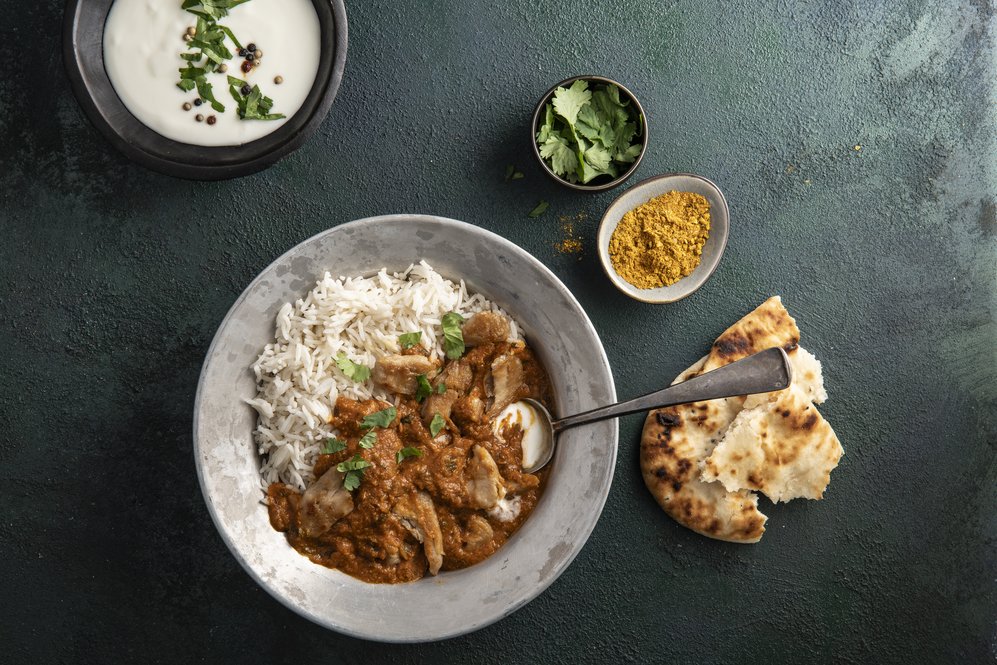According to data from SkyQuest, the European plant-based food market (including processed plant-based foods created out of e.g. soy, wheat, peas, nuts) is expected to surpass a value of USD 15 billion during 2022-2028. The same report shows that around 2.5 million vegans lived in Europe in 2022 and by 2025, it is anticipated that Europe's vegan meat and dairy-substitutes markets will be worth more than USD 7.8 billion. And, whilst giving up meat and dairy is not for everyone, it is clear that many want to make an effort to cut back on their consumption: more than 39% of European customers had either drastically reduced or completely eliminated their consumption of red meat.
Growing market = innovative new products
The rise of veganism and those simply wanting to boost their consumption of plant-based foods, whilst cutting back on meat and dairy has – inevitably – led to a boost in companies developing innovative plant-based products. One such company is Ojah, which is located in the Netherlands and “produces innovative, sustainable plant protein products to maximise the transition from an animal to a more plant-based diet.” Ojah makes its products by “texturizing” plant proteins through ‘High Moisture Extrusion’. Its main products - Plenti - is almost indistinguishable from real meat because of its fleshy texture and it is made from only two ingredients: plant protein (soy) and water. For Ojah, sustainability and Non-GMO go hand-in-hand, and significant emphasis is also placed on local provenance of their products.
Joeri Hollink, Head of Product Development at Ojah, spoke on a panel at the International Non-GMO Summit where he commented on the high level of trust in European soy as being Non-GMO. Trust is important for Hollink, especially in the context of food: “We are producing something that people consume and put in their bodies. Trust is vital,” he commented during the Summit.
A cultural revolution
ENGA spoke to Joeri after the Summit to delve in deeper to the topic of plant-based foods. His company’s experience is illustrative of the market data. “We are talking about a huge cultural evolution of western diets, that will continue to evolve in the coming decades. The biggest driver for countries, companies, NGOs and retailers is sustainability. The carbon footprint of an average meat alternative is five times lower than its meat equivalent. At the same time, we see consumers choosing a meat-free or flexitarian diet, driven by personal health primarily, before sustainability. Consumers are looking more critically at food and where it comes from and are increasingly informed about it. They translate that into their behaviour and act upon that in the supermarket,” said Joeri.
Other key drivers for Ojah’s customers are provenance and traceability:
“Locality is really important to us and to our customers,” commented Joeri. “It reduces the transport carbon footprint of food and therefore is in most cases the most sustainable option. Ojah strives to source locally and produce locally for local consumers. This also makes it easier to tackle topics such as GMO, the use of pesticides and labour conditions, because it is produced within customers’ own local legislation, by people with the same norms and values.”
Plant-based and Non-GMO are non-negotiable
Whilst sometimes the development of innovative foods seems to be the “wild west”, with lab-grown meat alternatives often GMO-based, Ojah takes completely the opposite approach and prioritises the Non-GMO nature of its products: “For plant-based foods, Non-GMO is a must - there are no concessions possible here,” said Joeri. “Retailers are also increasing the percentage of Non-GMO fed animal meat, which seems to partially be driven by consumers who are buying and eating more consciously, such as flexitarians.”
The future for plant-based foods
It is clear that humankind must evolve the way it consumes, what it eats and how it farms that food. Broadly defined as sustainability, this - combined with health concerns - means that the future looks bright for the plant-based food market. We also know that young people are more likely to be vegan or vegetarian. Take Germany, for example (where rates of veganism and vegetarianism are amongst the highest in Europe); a study, published in 2021, by PHW showed that the proportion of vegans and vegetarians is higher among younger generations in particular, declining steadily with increasing age. A total of 14% of respondents to their survey, aged 18-29, follow a vegetarian diet, with 3% in this age group describing themselves as vegan. However, the percentage of vegetarians among respondents aged 60-75 falls to 5%, while no vegans were recorded within this age group (0%).
Joeri paints a positive picture too: “Plant-based foods will slowly enter our diets in higher quantities, replacing their meat equivalent. Currently the focus from producers, retailers and consumers is to literally replace meat with its surrogate. In this way consumers do not have to change too much, as they can still cook the exact same dinners that they did before. I believe however, that consumers will slowly adapt to a more plant-based diet and will start to cook differently as well. The new family recipes will involve protein rich beans. You could therefore say that meat-alternatives as we know them now, are most likely merely transitional products. This also means that now is the time to take steps and make progress on sustainability, environment and health on the production of crops. The closer consumers get to eating food straight of the land, the more important these topics will become.”
Find out more about Ojah: www.ojah.eu
About the International Non-GMO Summit: www.nongmosummit.com
